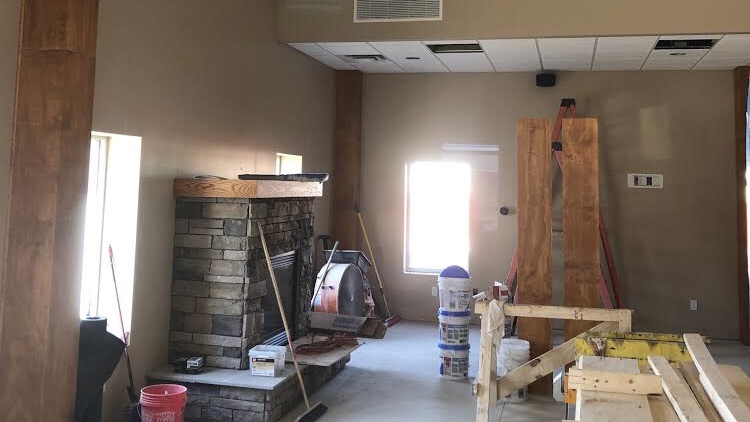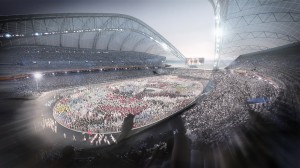Next year, Houghton students will be able to enjoy several newly renovated facilities around campus.
One project nearing completion is the addition of the Faith of a Mustard Seed Atrium to the Equestrian Center. Construction of this atrium began at the end of January and is expected to be completed in mid-April. Larissa Ries, the equestrian program director, explains that the space will serve as the “first location people go when arriving at the Equestrian Center, [to] check in, register for competitions, gather information or hold meetings,” as well as a comfortable lounge space for students and visitors. The atrium space was anticipated when the Equestrian Center was built in 2018, but the original anonymous donation which funded the construction did not cover the costs for fully furnishing the atrium, according to Ries. Since then, one large donation and a number of smaller gifts funded the completion of the space, which will include a fireplace and TVs for watching indoor equestrian events.
Houghton’s Director of Athletics, Matthew Webb, says that numerous improvements to the athletic facilities are “in the works,” either as quick projects this semester or as renovations this summer. Donors have funded new turf for portions of the baseball and softball fields, new netting and protective tarps, as well as upgraded and reorganized equipment within the press boxes. Additionally, the college received a grant to build the KPAC KidsZone, a playground area near Burke Field. Webb calls the KidsZone “a beautiful addition to our facilities which will have great community impact.”
Paine Science Center will continue to receive upgrades according to the plans that began in the summer of 2019 to use funds raised by Houghton’s IMPACT campaign. Miriam Case, Academic Coordinator for the STEM departments, says, “There was too much to accomplish in one summer so it was planned for two, but with the closure of campus last summer we have stretched it another year.” The most noticeable changes will be completely renovated Anatomy & Physiology and Molecular & Cell biology labs. Remaining funds will help update the labs for General Chemistry, Organic Chemistry, and Physical Chemistry.
Shen’s KPAC-side fire escape will be replaced out of the college budget. Between internal and external staircases, the building currently meets fire code requirements, according to Vice President for Finance Dale Wright. However, the “deteriorated” fire escape will be replaced with a covered stairwell similar to that on the Nielsen side of Shen. ★


